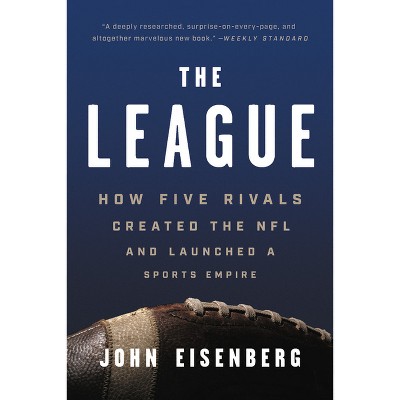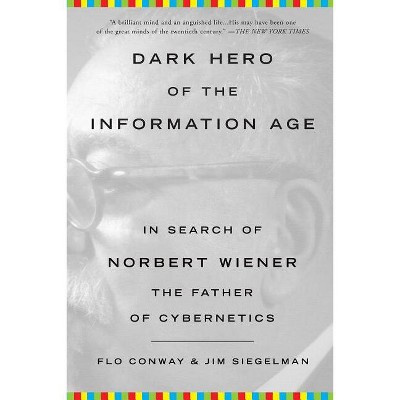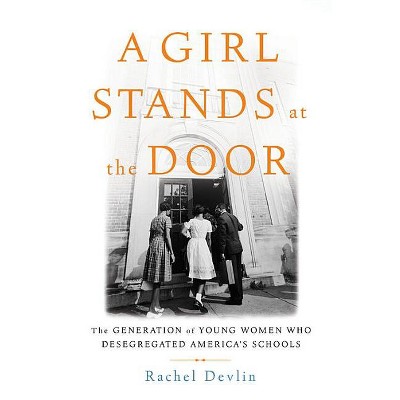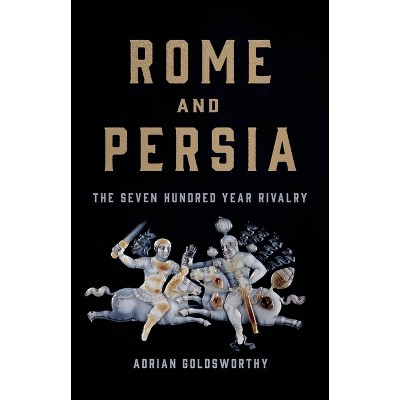About this item
Highlights
- An acclaimed sportswriter offers an inside look at the Black quarterbacks whose skill and grit transformed the NFL In Rocket Men, John Eisenberg offers the definitive history of Black quarterbacks in the NFL--men who shaped not only the history of football but the cause of civil rights in America.
- About the Author: John Eisenberg is the author of ten books, including The Streak and The League.
- 416 Pages
- History, African American
Description
About the Book
"Before there was Colin Kaepernick, there was Fritz Pollard. The first Black quarterback to play in the NFL, Pollard was a dynamo, leading his team to a national championship, drawing record crowds, and earning the highest salary in the league. He was also subject to a constant stream of racist abuse. Spectators jeered and threw rocks, and opposing players singled him out, using the cover of the game to pummel the only Black man on the field. It would be nearly fifty years before another NFL team started a Black man as quarterback. In Rocket Men, sportswriter John Eisenberg offers the definitive history of Black quarterbacks in the league-men who not only shaped the history of football, but made indelible contributions to the cause of civil rights in America. As Eisenberg recounts, white coaches, scouts, and team owners long perceived Black players as unfit for the quarterback position. Believing Black athletes could not play "in thinking roles," they relegated them to running back, defensive back, and receiver positions. In the late 1960s, a few teams began to bring on Black quarterbacks once more. Players like James "Shack" Harris and Marlin Briscoe proved beyond a shadow of a doubt that Black men could play the position just as well-if not better-than their white peers. Yet it wouldn't be until the 1990s, when the league began hiring more Black coaches and general managers, that Black quarterbacks truly got the opportunity to shine. When they did, they transformed the game. Drawing on exclusive interviews with dozens of Black quarterbacks and the players, coaches, and managers who work alongside them, Rocket Men is a reminder of how much Black quarterbacks have had to overcome to gain a space in pro football, and a celebration of the athletes and activists who paved the way for today's Black quarterbacks to triumph"--Book Synopsis
An acclaimed sportswriter offers an inside look at the Black quarterbacks whose skill and grit transformed the NFL
In Rocket Men, John Eisenberg offers the definitive history of Black quarterbacks in the NFL--men who shaped not only the history of football but the cause of civil rights in America. From early pioneers like Fritz Pollard to groundbreaking modern standouts like Marlin Briscoe and James "Shack" Harris, Black quarterbacks had to be twice as good as their white counterparts to get playing time--and even then, many never got that chance. That didn't begin to change in earnest until the 1990s and the 2000s, when racist notions about what Black quarterbacks supposedly couldn't do began to fade, paving the way for today's stars like Patrick Mahomes and Lamar Jackson.
Drawing on deep historical research and exclusive interviews with Black quarterbacks and players, coaches, and talent evaluators who have worked alongside them, Rocket Men is a celebration of the athletes and activists who transformed the game.
Review Quotes
"As thorough an examination of the question of both race and the quarterback position in professional football, as can be found anywhere."
--New York Journal of Books
"Illuminating." --Pittsburgh Post-Gazette
"An incisive appraisal of how racism has shaped who gets to play the 'most pivotal and glamorous' position in football."
--Publishers Weekly
"An insightful behind-the-scenes peek at the NFL and its continuing prejudices that negate the concept that the best quarterback should play, regardless of race. Rich with commentary from interviews, this expansive narrative is ideal for football lovers and readers interested in developments in U.S. race relations and the compelling stories behind some athletes' paths and experiences."
--Library Journal
"Compelling...Eisenberg meticulously chronicles the struggles and success of NFL Black quarterbacks."
--Booklist
"A vigorously told story of the battle for equity on the gridiron, a battle that is still playing out."
--Kirkus
"Rocket Men shines a spotlight on the important, yet often overlooked story of Black invisibility in professional football. This comprehensive history reveals that talented African American quarterbacks, whether unjustly passed over, benched, or shifted to different positions, have been hidden in plain sight since the earliest days of the NFL. Moving from the likes of Willie Thrower to Doug Williams to Lamar Jackson, Eisenberg traces pro football's institutional racism, both on and off the field, with honesty, measure, and eloquence."
--Theresa Runstedtler, author of Black Ball
"In Rocket Men, John Eisenberg pulls off a tough but neat trick. He has written a book that offers both a compelling story and a blunt look at the history of race in the NFL through the sport's most important position. It is written with grace, kindness, and an understanding eye towards the players who endured horrid discrimination, without sparing the perpetrators of that bigotry. Highly recommended."
--Mike Freeman, author of Football's Fearless Activists
"Rocket Men expertly tells the story of an important evolution in pro football over the course of nearly a hundred years, encompassing everything from the reluctance of teams to play Black quarterbacks Marlin Briscoe and James Harris at the beginning of the Super Bowl era in the mid-'60s all the way to the historic matchup of Patrick Mahomes and Jalen Hurts starting against each other in Super Bowl LVII. As expected, Eisenberg's interviews and research are flawless."
--Gary Myers, New York Times-bestselling author of Brady vs. Manning
About the Author
John Eisenberg is the author of ten books, including The Streak and The League. He won nearly two dozen writing awards at the Baltimore Sun, where he wrote five thousand columns over three decades. He lives in Baltimore, Maryland.












